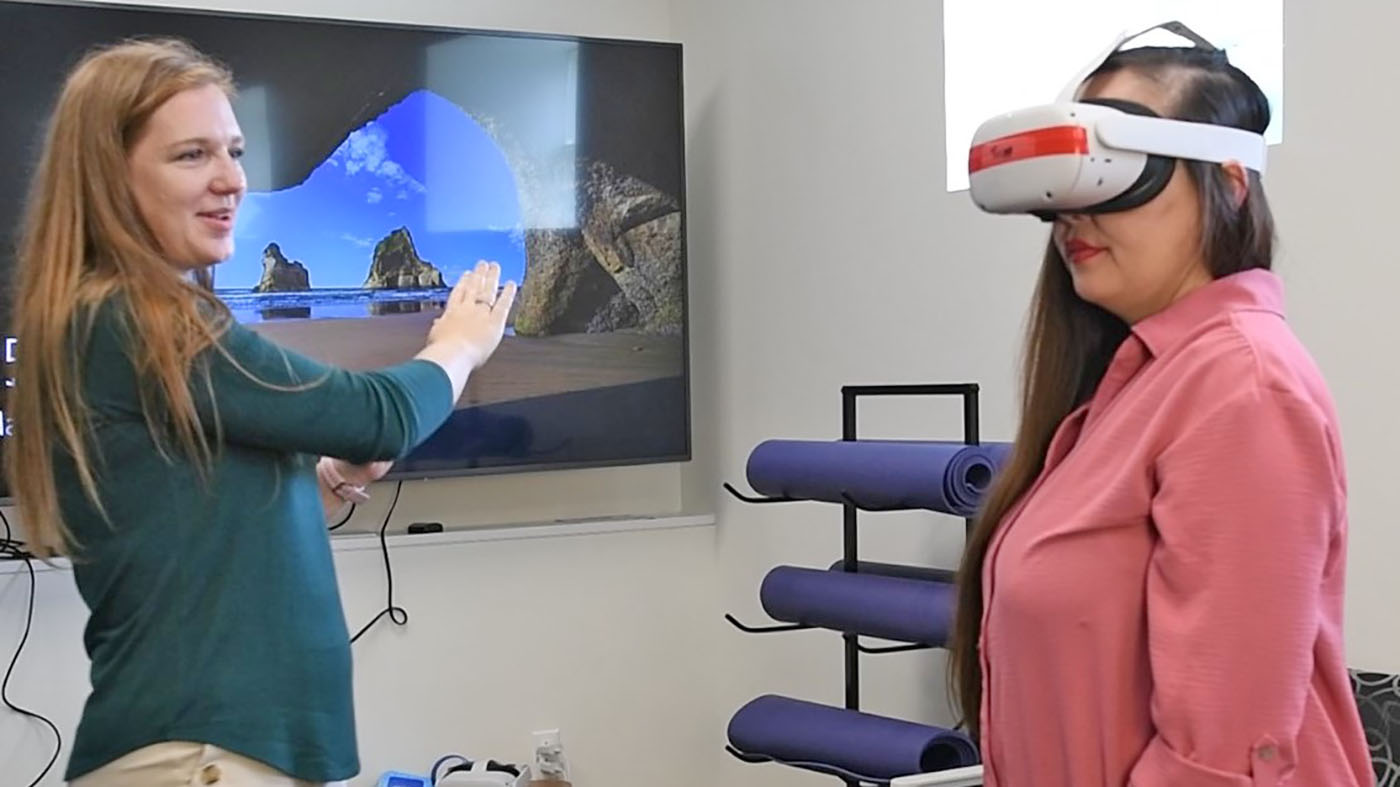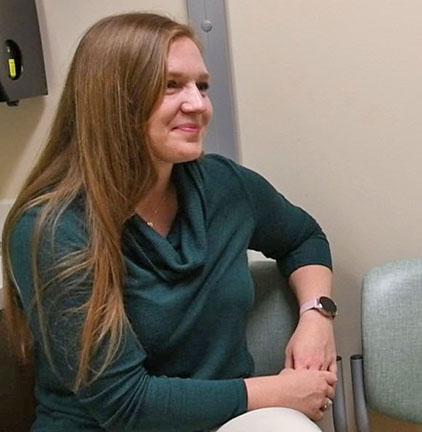At Michael E. DeBakey VA in Houston, leaders are working to improve care for Veterans and employee well-being by expanding use of new medical technology.
In conjunction with a virtual reality (VR) fair the medical center held in December 2023, leaders opened a mini-grant program for clinical staff to apply to study virtual reality and how it can improve care for Veterans and employees.
VR winners
In March, 10 winners were announced, one of which was Dr. Mackenzie Shanahan, a postdoctoral fellow who specializes in the treatment of patients with chronic health conditions.
Working alongside her supervisor, Dr. Gina Evans, Shanahan’s project plans to enhance treatment of Veterans with irritable bowel syndrome by incorporating VR as a tool in the delivery of gut-brain psychotherapies.
“What we are finding is that Veterans really love using VR. And by using VR, patients will be able to become more immersed in the practice of mindfulness and relaxation, which can help increase their use of this practice, reduce pain and anxiety, improve quality of life and increase satisfaction with health care services,” Shanahan said.
Shanahan, a graduate of Indiana University and Purdue University Indianapolis, selected the subject because irritable bowel syndrome impacts nearly 30% of Veterans, and psychotherapy and therapy skills can improve these patients’ GI symptoms and pain.
“Very few psychologists specialize in the care of patients with GI conditions Our proposal hopes to address this gap in care so that patients with IBS might have more access to gut-brain focused psychological treatment and can more easily use skills like mindfulness and relaxation to improve their symptoms,” she explained.
Addressing many issues
Houston VA’s Associate Chief of Staff for Education, Dr. Angela Catic, says the mini-grant program will address staff well-being as well as many issues facing Veterans today.
“We are very excited by the impact this grant program is going to have on health care for Veterans. We have a variety of projects in a lot of different clinical areas and are looking forward to our Veterans being able to engage with virtual reality and see the impact this has on pain levels, headaches and on their ability to engage in mindfulness and stress reduction,” Catic said.
Catic says it is not unusual for trainees to be involved in most of the educational, research and quality improvement efforts throughout the facility and that Shanahan is a great fit for this grant program.
“Dr. Shanahan is a remarkable trainee. It really speaks to her dedication to Veterans, her close work with her mentors and her vision to use VR in the patient population that she cares for,” Catic added.
For Shanahan, who has trained with VA for almost six years, working with Veterans is a gratifying experience.
“I find working with Veterans to be both professionally and personally rewarding. As the wife of a currently serving Army captain, I have a vested interest in the health of our Veterans. I am happy to be able to give back to Veterans through my research and delivery of clinical services,” Shanahan said.
Catic says the results of the mini-grant program will continue to enhance treatment of Veterans at Houston’s VA as they look to build upon the program. “We look forward to monitoring the outcomes of this grant program over the coming year and then look forward to expanding these projects in the future.”
The mission of training future health professionals for VA and the nation, established more than 78 years ago, is one of VA’s four statutory missions and is overseen by the Office of Academic Affiliations. More than 120,000 health professions trainees in over 60 clinical disciplines train at VA each year as they care for Veterans.
Topics in this story
Link Disclaimer
This page includes links to other websites outside our control and jurisdiction. VA is not responsible for the privacy practices or the content of non-VA Web sites. We encourage you to review the privacy policy or terms and conditions of those sites to fully understand what information is collected and how it is used.
More Stories
The Medical Foster Home program offers Veterans an alternative to nursing homes.
Watch the Under Secretary for Health and a panel of experts discuss VA Health Connect tele-emergency care.
The 2024 National Veteran Suicide Prevention Annual Report provides the foundation for VA’s suicide prevention programs and initiatives.







